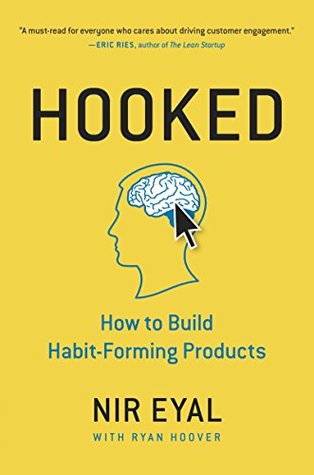More on this book
Community
Kindle Notes & Highlights
A new breed of companies is now creating products to improve lives by implementing healthy habits.
Fitness apps, charity Web sites, and products that claim to suddenly turn hard work into fun often fall into this quadrant.
Peddlers tend to lack the empathy and insights needed to create something users truly want.
fade
could be worth a bundle.
“It wasn’t until we tried a mobile version that we noticed a difference in people, including ourselves, turning to the Bible more because it was on a device they always had with them.”
Its users take it everywhere, reading the scripture in even the most unsanctified places. The company revealed that 18 percent of readers report using the Bible App in the bathroom.
“Disclosing information about the self is intrinsically rewarding,”
mobile interface increased accessibility and usage by providing frequent triggers.
increases users’ ability to take action by front-loading interesting content and providing an alternative audio version.
the verses into small chunks, users find the Bible easier to read on a daily
not knowing what the next verse will be adds a variable reward.
antithetical
disheartening,
dichotomy
slim down.
lethargic
wres...
This highlight has been truncated due to consecutive passage length restrictions.
countless
brainchild
lifting
action phase
acutely
on the fly,
stumbling
Fitbod requires no long-term commitments.
Not only is there an element of surprise in discovering which exercises the app chooses for me (rewards of the hunt), but the app also brings out the intrinsically rewarding elements of exercise as well.
when using Fitbod is the satisfaction of conquering the exercise itself.
clear weight and repetition goals for each activity,
The investment phase of Fitbod’s Hooked Model occurs every time I log an exercise. By entering data, I’m storing value in the service and ensuring it improves the more I use it.
After reading Hooked, the founders of the Fitbod App targeted a very specific user habit.
Fitbod sought to own the internal trigger related to the uncomfortable feeling of uncertainty of not knowing what to do in the gym.
Does your users’ internal trigger frequently prompt them to action? Is your external trigger cueing them when they are most likely to act?
Is your design simple enough to make taking the action easy? Does the reward satisfy your users’ need while leaving them wanting more? Do your users invest a bit of work in the product, storing value to improve the experience with use and loading the next trigger?
The Hooked Model can be a helpful tool for filtering out bad ideas with low habit potential as well as a framework for identifying room for improvement in existing products.
Habit Testing does not always require a live product; however, it can be difficult to draw clear conclusions without a comprehensive view of how people are using your system.
dig into the numbers
threshold.
However, if at least 5 percent of your users don’t find your product valuable enough to use as much as you predicted they would, you may have a problem.
the next step is to codify the steps they took using your product to understand what hooked them.
You are looking for a Habit Path—a series of similar actions shared by your most loyal users.
For example, in its early days, Twitter discovered that once new users followed thirty other members, they hit a tipping point that dramatically increased the odds they would keep using the site.1
This may include an update to the registration funnel, content changes, feature removal, or increased emphasis on an existing feature. Twitter used the insights gained from the previous step to modify its on-boarding process, encouraging new users to immediately begin following others.
Tracking users by cohort and comparing their activity with that of habitual users should guide how products evolve and improve.
“Instead of asking ‘what problem should I solve?’ ask ‘what problem do I wish someone else would solve for me?’”
novelties
“The Americans have need of the telephone, but we do not. We have plenty of messenger boys.”
In 1911 Ferdinand Foch, the future commander in chief of the Allied forces in World War I, said, “Airplanes are interesting toys but of no military value.”
fad
won’t last out


